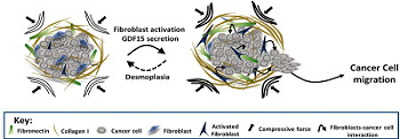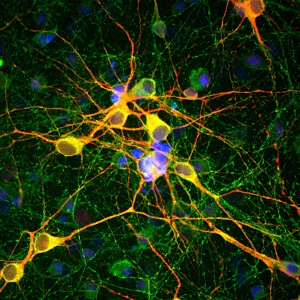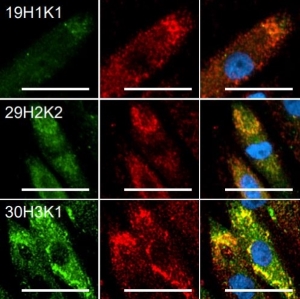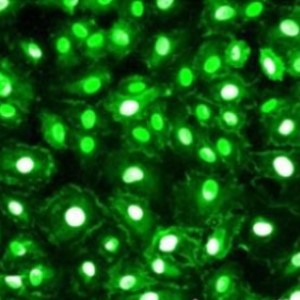Check out this study using our Human Pancreatic Fibroblasts about the role of compression in metastatis.
Pancreatic fibroblasts are continuously gaining ground as an important component of tumor microenvironment that dynamically interact with cancer cells to promote tumor progression. In addition, these tumor-infiltrated fibroblasts can acquire an activated phenotype and produce excessive amounts of extracellular matrix creating a highly dense stroma, a situation known as desmoplasia.
First Image: Neuromics' Human Pancreatic Fibroblast in culture-Controls and Compressed.
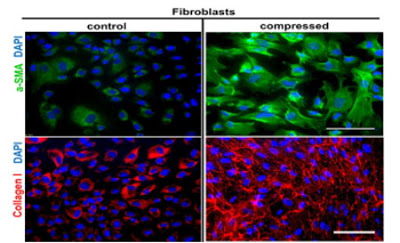
Publications: Maria Kalli, Panagiotis Papageorgis, Vasiliki Gkretsi, Triantafyllos Stylianopoulos. (2018). Solid Stress Facilitates Fibroblasts Activation to Promote Pancreatic Cancer Cell Migration. Annals of Biomedical Engineering. https://doi.org/10.1007/s10439-018-1997-7.
Second Image: A schematic of the in vitro transmembrane pressure device. (a) Fibroblasts were grown as a monolayer on the transmembrane of a 0.4 lm transwell insert and a piston of adjustable weight was applying a compressive stress. Control cells were covered with an agarose cushion only. (b) The experimental set-up of the co-culture system consisted of fibroblasts and pancreatic cancer cells (MIA PaCa-2 or CFPAC-1) in the upper and lower chamber of a transwell insert, respectively. A piston with adjustable weight, applying 4.0 mmHg of compressive stress on fibroblasts for 48 h is shown. A co-culture system consisting of fibroblasts and cancer cells without a compressive load was used as a control.
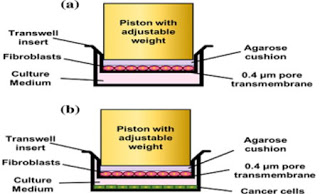
Solid stress developed within tumors is able by itself to activate normal fibroblasts, which in turn produce excessive amounts of ECM proteins leading to desmoplasia.
Third Image: A schematic of the in vitro transmembrane pressure device. (a) Fibroblasts were grown as a monolayer on the transmembrane of a 0.4 lm transwell insert and a piston of adjustable weight was applying a compressive stress. Control cells were covered with an agarose cushion only. (b) The experimental set-up of the co-culture system consisted of fibroblasts and pancreatic cancer cells (MIA PaCa-2 or CFPAC-1) in the upper and lower chamber of a transwell insert, respectively. A piston with adjustable weight, applying 4.0 mmHg of compressive stress on fibroblasts for 48 h is shown. A co-culture system consisting of fibroblasts and cancer cells without a compressive load was used as a control.
